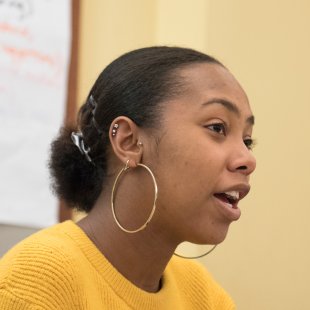Dual Master's of Arts in Counseling and Forensic Psychology

A dual degree with limitless opportunities
Do you care about community mental health and social justice? In this unique program you’ll study the fascinating intersection of psychology and criminal justice. You'll learn about the culture of the criminal justice system and how social demographics, including race, gender, sexual orientation, class, mental health, and religion affect the distribution of justice, punishment, and treatment. You’ll gain a strong foundation in restorative justice, forensic assessment, and have an opportunity to apply theory to practice through real-world experience.
This one-of-a-kind program leads to two separate master’s degrees (Master’s in Counseling & Master’s in Forensic Psychology), allowing you to study both forensic psychology and counseling simultaneously. With this flexible path, you can specialize in forensics—a growing and in-demand field—while also preparing for MFT or LPCC licensure.
2026 Fall Term Deadline - June 1st*
*Applications received after the deadline will be evaluated on a space available basis.

Program Duration
- Sequence of 82 units; designed to build skills that are applicable beyond the workplace and to help you grow and succeed
On-Campus Environment
- 15-18 learners per cohort
- Cohort members in the program form a learning community
Small Class Sizes
- Fall Term:
- Final: June 1st
- Spring Term:
- Final: October 15th
Where an MA in Counseling and Forensic Psychology can take you
The MA in Counseling and Forensic Psychology will prepare you for a wide range of career options, including work in a behavioral health court, correctional setting, outpatient mental health program, or private practice.
Program Highlights
• Real-word experience: students gain their own practical experience in clinical placements.
• Learn from working professionals: our faculty members are experienced clinicians and researchers.
School and Department Information
We believe that education can transform lives and make a positive impact on our future and in our communities — particularly those that are underserved. Our curriculum prepares leaders who understand the causes of inequities within society and how these affect our communities, including students, parents and teachers.
